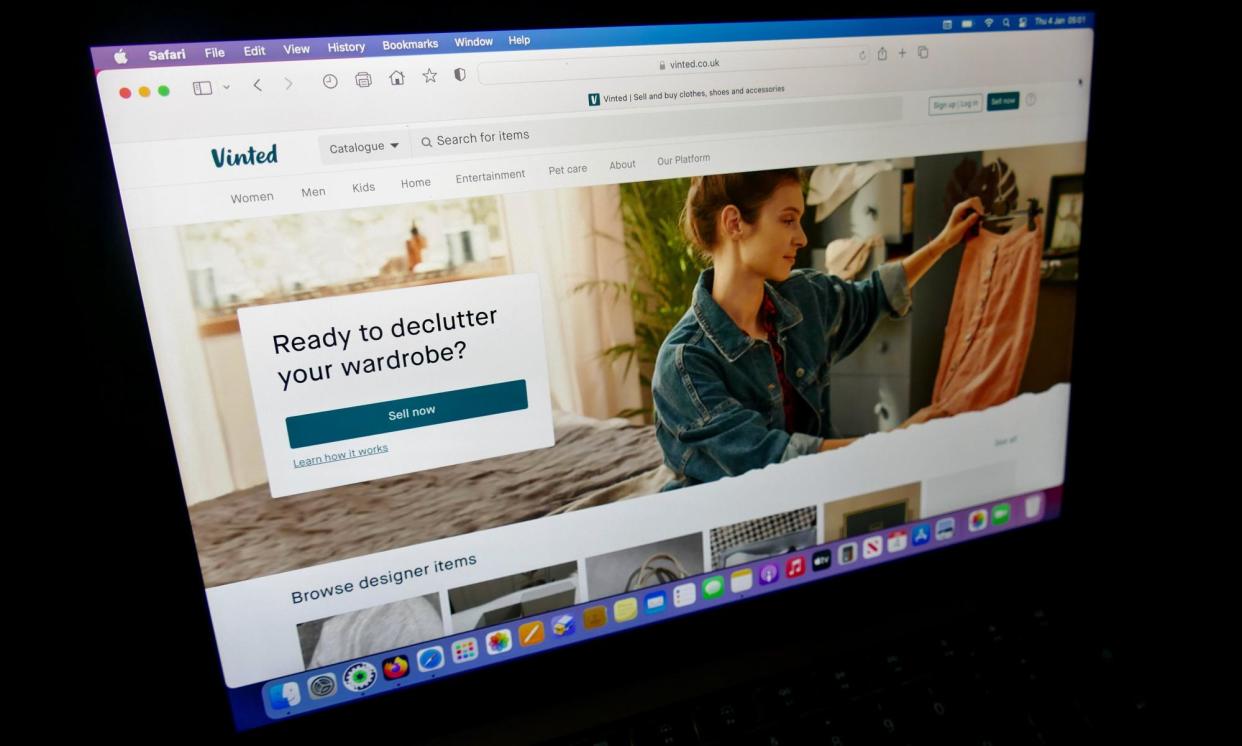Secondhand fashion seller Vinted moves into profit after 61% sales rise

The online secondhand fashion seller Vinted has reported a 61% rise in sales to almost €600m (£513m), taking the company out of the red for the first time amid a boom in demand for “pre-loved” clothing.
The Lithuania-based group said growth had been spurred by entering new markets including Denmark and Finland; an expansion into luxury fashion through its acquisition of secondhand high-end fashion site Rebelle in 2022; and the launch of a verification service.
Vinted said sales rose to €596m last year – making it about a third of the size of Asos – while profit after tax was €17.8m compared with a loss of about €20m a year before.
Related: Designer brands owed millions after Matchesfashion collapse
The group employs more than 2,000 people, most of whom are based in Lithuania.
Vinted’s growth comes as concerns about sustainability, tight budgets and boredom with copycat fashion across the high street have driven a sharp increase in sales of secondhand clothing, particularly among young people.
Late last year the company secured a €50m credit facility to help it expand, including potentially acquiring other businesses and expanding its delivery service Vinted Go.
Thomas Plantenga, the chief executive of Vinted Group, said it was looking at a variety of different options for growth including moving into new countries and product categories.
“We see many opportunities ahead, so we’ll continue to balance profitability against investment opportunities to accelerate towards our mission,” he added.
“Secondhand fashion is still a relatively immature market and only a tiny proportion of fashion overall. Our performance in 2023 was not only proof that we can deliver strong growth but that we are at the forefront of a market with huge potential.”
The “pre-loved” category has gained mainstream popularity. The reality TV show Love Island was sponsored by eBay and featured some contestants acting as influencers to promote secondhand style.
Mainstream retail chains including Primark are also hosting secondhand sections in their stores.
Despite the shift, online secondhand specialists have struggled to make money, and Vinted’s rivals Depop and RealReal reported losses last year.
Against the backdrop of heavy competition among sellers, the eBay marketplace recently removed all seller fees for pre-owned fashion.
Sales of “pre-loved” clothing and footwear are on track to make up a tenth of the global fashion market next year.
Global sales of pre-owned clothes surged by 18% last year to $197bn (£156bn) and are forecast to reach $350bn in 2028, according to a report by GlobalData for the resale specialist ThredUp.
The landmark is expected to be reached a year later than predicted, as global growth remains slightly behind previous estimates.


